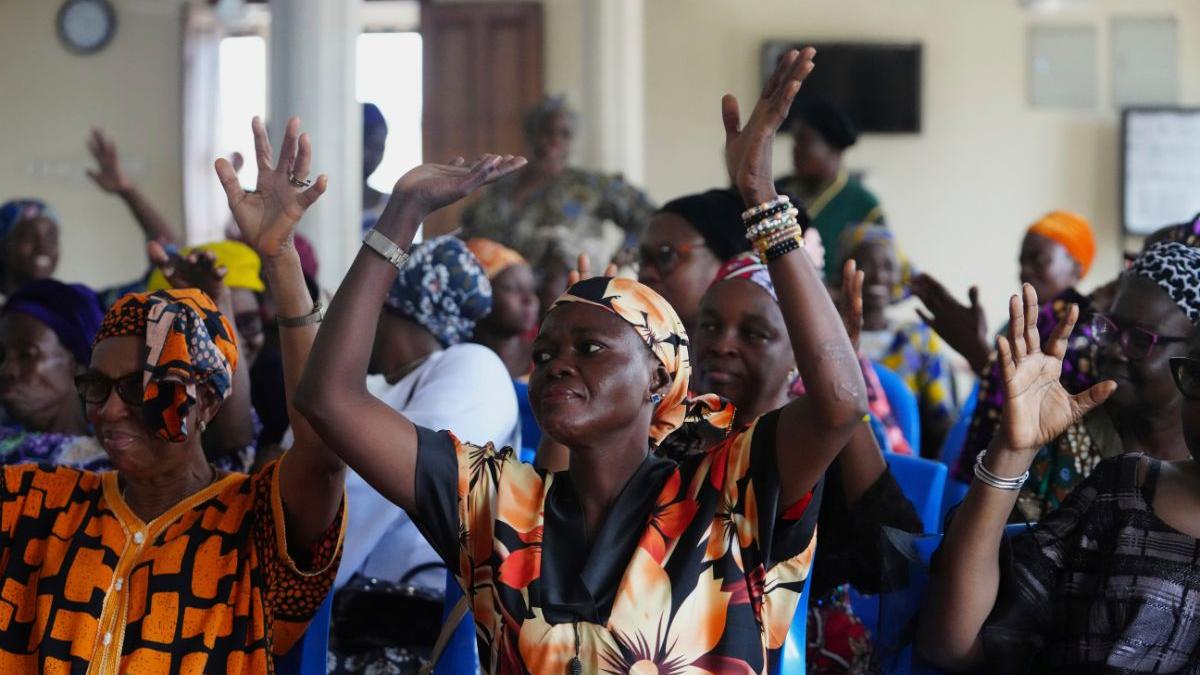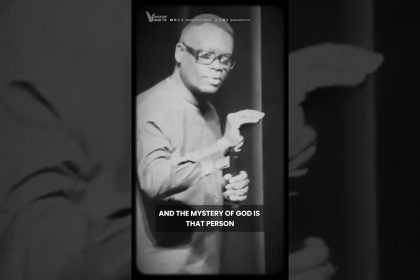In the bustling Nigerian megacity of Lagos, a unique church is providing deaf worshippers a spiritual home where their language is understood, their prayers are seen, and their community is embraced.
At first glance, it looks like any other church in the city. A lectern stands before rows of plastic chairs, a biblical verse is inscribed across a wooden beam, and a music section features a familiar set of drums. Church wardens wearing sashes move through the crowd to maintain order.
But instead of hymns and spoken prayers, this church in Somolu, a mixed-income suburb, vibrates with bursts of drumming and exclamations that guide the congregation. These cues signal when to pray, kneel, or respond to the preacher’s calls for “Hallelujah”. For the 50 to 60 members who worship here each week, the service is conducted entirely in sign language.
We have access to worship god in our language
Imoh Udoka, a father of two, has been attending the church for 36 years. At the age of nine, he lost his hearing after contracting meningitis, and with it, his access to faith.
“Most churches in Nigeria do not have accommodation for deaf people,” Udoka explained.
He discovered the church through community outreach, and today he works as a sign language teacher.
“Here in this church, we have access to worship God in our sign language.”
Remi Akinrenmi, one of the church’s pastors, leads services every Sunday with passion and purpose. He preaches entirely in sign language and is known for his charismatic presence on the pulpit.
On one Sunday, his sermon explored the dangers of jealousy. On another, he spoke of the importance of faith. In response to “Praise the Lord”, the congregation waves their hands above their heads, a visual form of praise.
For Akinrenmi, what matters most is the sense of togetherness. “There was no community for us before the deaf church started,” he said.
“Now, we see each other and say, ‘Oh, you are deaf, too. I am also deaf.’ And we are now together and have formed a community.”
He added, “God understands every language. With sign language, God also understands us.”
A safe space to connect and relate
Disability advocates in Nigeria say churches like this are essential, especially in a society where disabilities are often misunderstood and stigmatised.
In many parts of Africa, disability is still viewed through the lens of superstition or punishment from the divine.
“An exclusive space like this church offers them an opportunity for a safe space to be able to connect and relate,” said Treasures Uchegbu, founder of Speaking Fingers, a Lagos-based sign language advocacy group. “They can say, ‘I am not a deaf person just standing alone, I have other deaf people around.’”
Teaching sign language and reaching more communities
The church not only serves as a place of worship but also a hub for learning and outreach. It regularly organises evangelism programmes in other deaf communities across Lagos and runs a dedicated unit for teaching sign language.
Hearing children of church members often attend these classes to better understand their parents. Some hearing students also participate in church services to improve their own sign language through immersion.
From isolation to empowerment
The church was founded in 1956, during Nigeria’s colonial era, as the Christian Mission for Deaf Africans. Today, it continues to grow in significance, especially in a country where around 10 million people out of the 220 million population are deaf or hard of hearing.
Infrastructure for people with disabilities in Nigeria remains limited, and although laws exist to protect their rights, enforcement is weak. Activists say meaningful change is slow due to a lack of political will.
Oluwakemi Oluwatoke-Ogunjirin, 49, who works with the Lagos state government, has lived her entire life with hearing loss. She previously attended churches with her hearing family, but said she often felt excluded.
“The church goes beyond faith; we have people like ourselves that we can talk to as friends,” she shared.
Through the church, she has improved her sign language skills, which has helped her connect with others and overcome the isolation of her early years.
“Sign language makes life very easy for us,” she said. “It helps us communicate beyond the church.”




